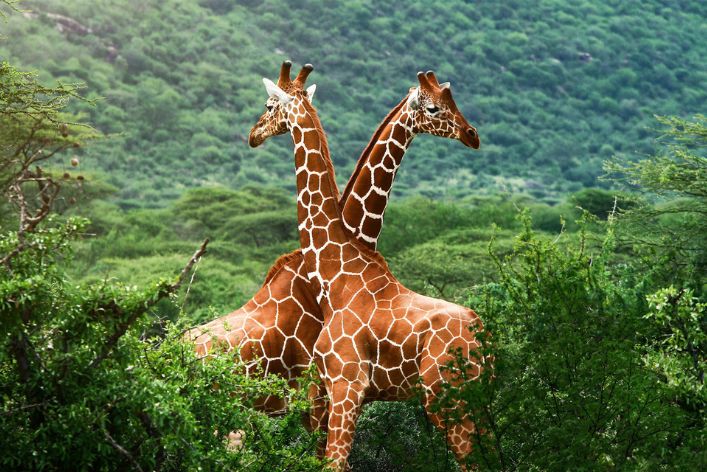Last Updated on May 17, 2023

Given its natural resources, arable soil, priceless minerals, and biodiversity, Africa may as well be the richest continent on earth. However, the bulk of Africans endure extreme poverty. Why? In essence, it is the inability of the government to promote the common good, distribute resources, lack transparency and accountability, and provide an impartial judicial system that serves all citizens. Analysts who focus solely on the economic aspect of the issue of poverty and development in Africa are ignoring a vital aspect of what causes poverty and underdevelopment.
Numerous initiatives with economics as their main focus, including the structural adjustment programmes (SAP), privatisation, currency devaluations, and trade liberalisation, have utterly failed to solve the issues. Many Africans now find themselves in a worse financial situation than they did before these programmes were implemented.
The Things That Need Development
Governance and the role of citizens
The promotion of the common good and protection of its residents are crucial elements of good administration. When creating policies and enforcing laws, leaders must consider the interests of all of their constituents. To encourage active civil society engagement in the political process, legislation and leaders must both be open and responsible. They must uphold the subsidiarity principles, which state that governments must not assume the duties of a lower entity. The democratic principle is threatened by a federal government that is overly centralised.
Tip O’Neil, a former US House Speaker, famously said, “All politics is local.” The governments of Africa have not realised this. The majority of Africans are disenchanted with their governments because they privatise the state and operate with impunity, and politics in the modern continent is concentrated in the hands of a few people. Leaders are less prone to behave without consequences in nations with engaged citizens.
As part of economic governance, every African nation must make significant investments in the development of human capital. A flexible, educated, and healthy workforce is essential for growth in the information-based global economy of today. Investing in human resources fosters individual development and enables freedom from poverty. In the domain of creating human capital, the international community and regional cooperation should contribute more funds.
According to contemporary economic growth theories, growth is a process of continual developments in the fields of technology, industrial upgrading and diversification, and numerous forms of institutional arrangements and infrastructure that provide the background for economic structural development refers to the growth of businesses and the production of wealth transformation.
Peace and security
In both development theory and development discourse, peace is not frequently seen as a function of progress. Both internal and external security should be key factors in the search for development alternatives in the context of postcolonial Africa.
The connection between security and development is important because internal political terror that has existed in Africa since the Cold War contributes to the continent’s development standstill. Political terror has actively undermined both development and security, whilst development theory and language, ranging from modernization theory to global neo-liberalism, have dominated “development” methods in Africa and generated an Africa devoid of development.
Foreign forces’ sponsorship of political terror, as evidenced by collateral damage, not only caused widespread fear and instability but also struck at the basic foundation of growth, including human resources, political institutions, and economic order.
Recognizing that peace is one of the prerequisites for development in African countries and that it exists and is experienced is a critical first step in rethinking development. The activities of defence must also consider their impact on sustainable development because peace does not entail the end of the military. Therefore, peace and security must function within the context of growth.
The economy
Africa’s primary exports of raw materials like crude oil, minerals, and other primary products link its value to stock market speculation. This connection impedes Africa’s participation in the global market, making its economy unstable and susceptible to the ‘national interest’ of its international trading partners. African politicians still carry out policies that harm their constituents’ interests in favour of those of these allies. To change this state of affairs, a systemic shift is required. This can be done by including the public in creating a future that advances the common good and is beneficial to them.
An economic structure depicts the relative output and factor usage contributions of the various economic sectors. Therefore, as the economy grows, we can view structural transformation as a change in the sectoral composition of output and the pattern of labour employment, which corresponds to an increase in real per capita GDP. Real per capita income growth in African countries must be sustained over a considerable amount of time.
Furthermore
Let’s look at Malaysia, a nation often compared to several African countries in terms of initial circumstances, growth trends, and development accomplishments. The primary sectors of Malaysia’s economy were agriculture and natural resources (rubber and tin), which served as the country’s mainstay. Sharp divisions in economic status, religion, and languages divided society (not dissimilar from the reality of many African countries).
However, we can interpret the ‘Malaysian growth story’ as the structural transition from a largely agrarian economy to a more industrialized one. Then, in the latter part of the 1990s, efforts were initiated to transition it further towards a knowledge-based economy. The tale illustrates, among other things, the crucial role that a state may play in transforming a struggling economy into a thriving one with a high middle class within a span of 30 years or fewer.
Final thoughts
Despite years of envisioning, creating, and putting into action numerous economic strategies and programmes, the African economy remains underdeveloped.
The absolute poorest people in the world, with little power to influence resource distribution, reside predominantly on the African continent. After that, real income averaged, making Africa the world’s poorest continent. The majority of African nations continue to be heavily dependent on aid, primary exporters and indebted.
The savings rate of the typical African country has been the lowest in the world. The development issues facing Africa go beyond low income, declining trade shares, low savings, and poor growth. Africa is the only major region where investment and savings per capita fell. We also include high inequality, unequal access to resources, social isolation, and insecurity.
Good governance and peace drive economic transformation, a primary catalyst for economic growth. With this, the continent should really make the most of the constructive interconnection that has resulted from globalisation.
Before You Go…
Hey, thank you for reading this blog to the end. I hope it was helpful. Let me tell you a little bit about Nicholas Idoko Technologies. We help businesses and companies build an online presence by developing web, mobile, desktop, and blockchain applications.
We also help aspiring software developers and programmers learn the skills they need to have a successful career. Take your first step to becoming a programming boss by joining our Learn To Code academy today!
Be sure to contact us if you need more information or have any questions! We are readily available.











